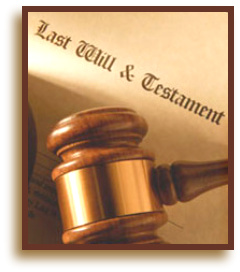- Home
- Practice Areas
- Probate & Estate Planning
Probate & Estate Planning
What is Probate?
Probate is a legal proceeding to inventory and properly distribute certain kinds of property (called probate property) owned by someone who has died (the decedent) and to pay all claims, expenses and taxes owed by the decedent’s estate.
The probate process generally begins when the named executor, or a person with an interest under the will, submits the will to the Probate Court. The Probate Court then determines the validity of the will, and issues an order appointing the named executor. With that order, the executor can then begin to pay off any debts of the estate, locate all the beneficiaries, prepare and file estate tax returns, and distribute the estate’s assets.
No set time-line exists for the probate process. Smaller estates can often be settled within six (6) months. However, the process can take a year or longer depending on -among other factors- the number of creditors of the estate, and whether estate tax returns need to be filed.
What is Estate Planning?
In order to understand estate planning, it is important to know what an estate is. An estate is what a person owns at his or her death, and it consists of two types of property: real and personal. Real property is simply real estate. Anything you own that is not real property is personal property.
Estate planning is the process by which a person decides how best to transfer his or her estate upon his or her death. The goal is to maximize the wealth transferred by minimizing the costs associated with such a transfer. These costs typically result from the administration and taxation of the estate.
Estate planning is for everyone. Regardless of the size of the estate, the prudent individual will possess -at the minimum- a Will, a Durable Power of Attorney, and a Durable Power of Attorney for Healthcare. We are happy to assist you in the creation of these documents so that you .
In some instances more complex documents are necessary in order to thoroughly organize your affairs and achieve your goals. When estate planning does become more complex it may be appropriate to use such tools as Credit Shelter Trusts (A-B Trusts), Living Trusts, and Life Insurance Trusts. We encourage you to schedule a free consultation so that we can discuss what options best fit your situation.
Should I Have A Will?
Yes, you should have a will. Regardless of the size of your estate, executing a will is a prudent decision. The following are four good reasons why you should have a will.
1. Your will directs disposition of your assets. Without a will your assets will be distributed according to state law, not according to your wishes.
2. Your will appoints an executor of your choice. Most people appoint a family member or close friend to serve as executor, due to the high levels of comfort and trust. Without a will the Probate Court appoints an administrator to take care of your estate, and this could be a non-family member with no connection to you or your family.
3. Your will appoints the guardian for your children. If you have a child, your will should appoint a guardian to provide for the child’s care should you die before the child becomes an adult. Without a will the Probate Court nominates a guardian of its choice, not yours.
4. Your will can waive the bond requirement for the executor. Unless your will directs otherwise, the executor or administrator must post bond in the amount of double the estimated value of personal property and annual rents from real estate you own. This can be a financial burden to either the executor, administrator, or your own estate.

